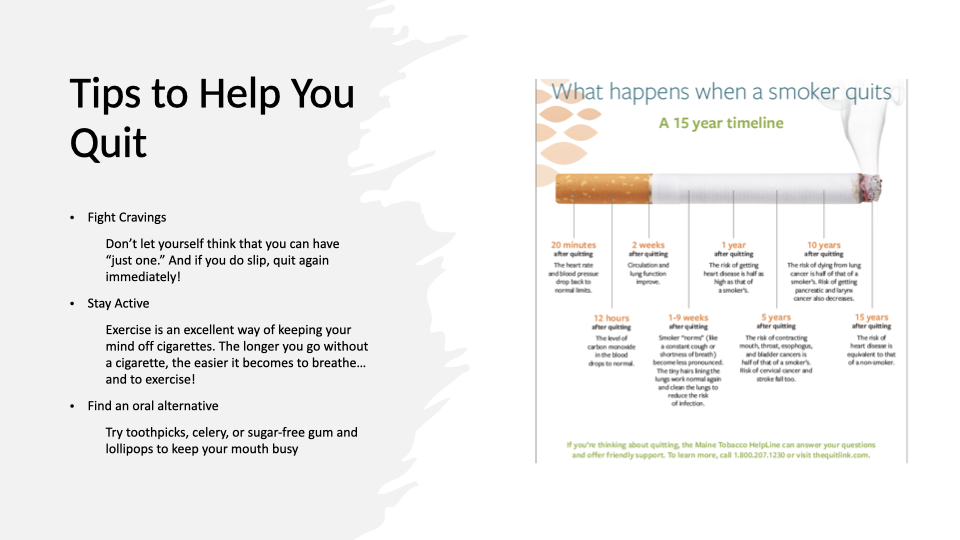Smoking and Surgery
Did you know….Smoking is the leading cause of preventable death?
Did you also know?….Smoking makes surgery and recovery much harder?
Just START
- Set a quit date. Make a commitment. Write down your reason for quitting and read it every day.
- Tell your family, friends, and coworkers that you plan to quit. Ask for their support.
- Anticipate that quitting will be a challenge. When you have a craving, go for a walk, call a friend, or engage in a hobby.
- Remove cigarettes and other tobacco products from your home, car, and workplace.
- Talk to your doctor about helping you quit. There are medicines and counseling that can help. Other tools and resources can be found at these sites:
It's hard to stop smoking, so why should I?
Smoking:
- Increases your risk of surgical site infections
- Increases the risk of lung complications during your hospitalization
- Increases the risk that a surgical wound comes apart (called “dehiscence”)
- Increases your risk of being admitted to the intensive care unit during your hospitalization
- Smoking after surgery puts stress on your heart, increases your blood pressure, and decreases the oxygen in your blood and tissues needed for healing.
What if I don’t think I can quit for good?
Quitting for at least four weeks before your surgery and during the immediate recovery period will decrease your risk of complications during surgery and during recovery. If you think you might not be able to quit long term, start with just four weeks…You may surprise yourself and continue the trend after surgery!
